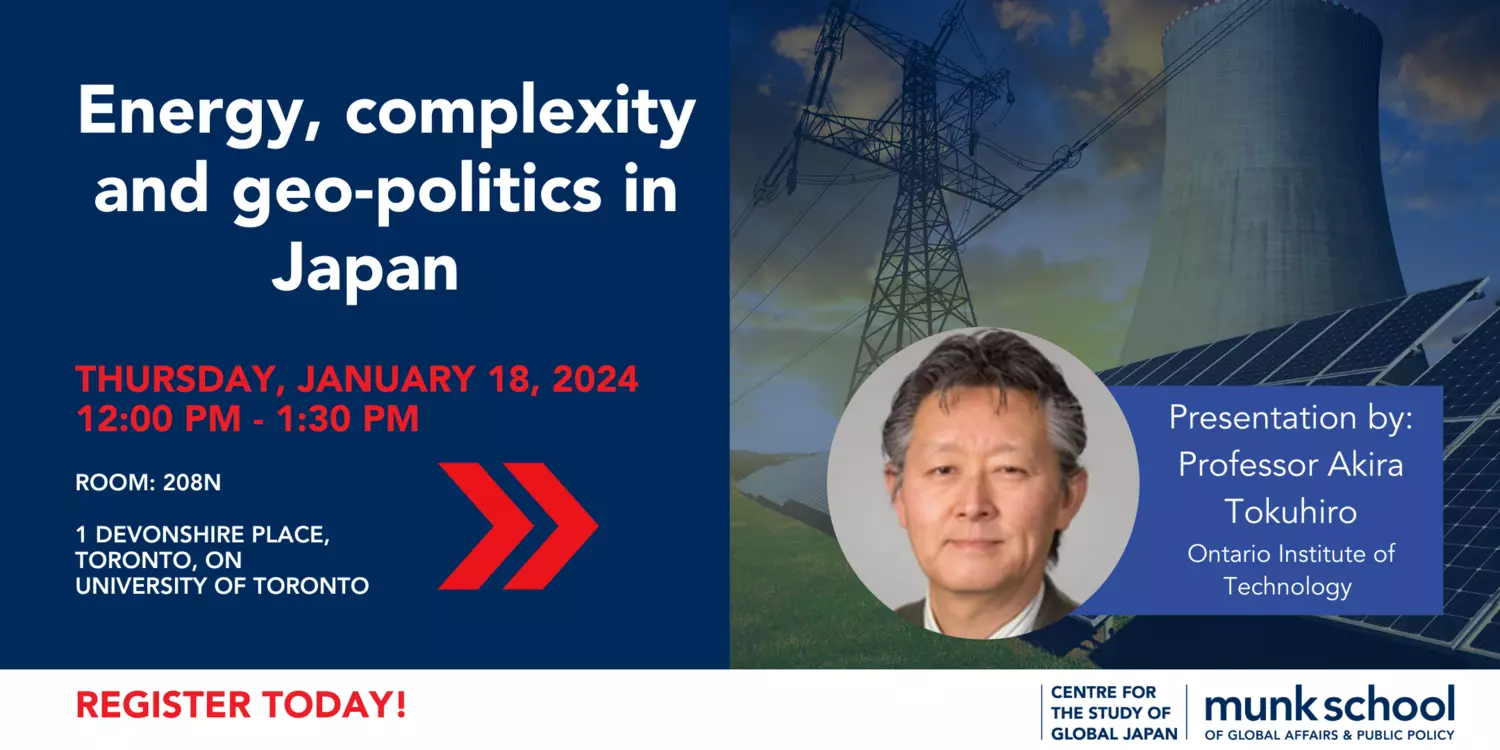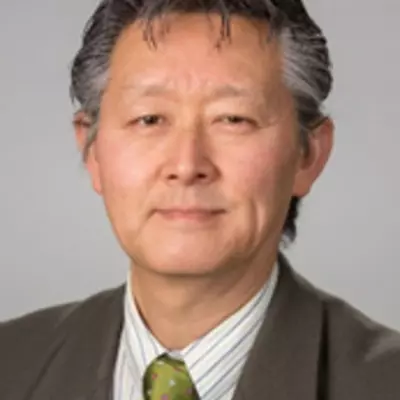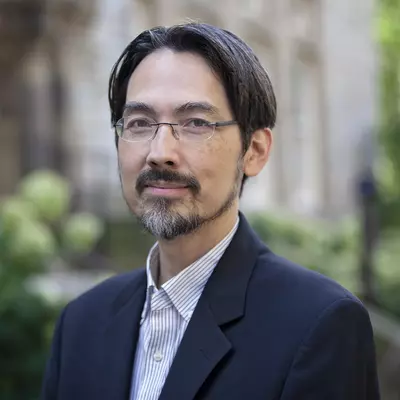
Energy, complexity and geo-politics in Japan
January 18, 2024 | 12:00PM - 1:30PM
|
In-person
This event took place in-person at Room 208N, North House, 1 Devonshire Place, Toronto, ON, M5S 3K7
How should we understand the opportunities and risks presented by nuclear energy in the 21st century? Japan responded to the 1970s oil shocks with a robust program of nuclear energy development, successfully mitigating the country’s dependence on fossil fuels. However, the Fukushima nuclear disaster – triggered by the 2011 Tohoku earthquake and tsunami – raised serious questions about nuclear safety and regulatory practices across the world. The speaker discussed how nuclear energy and energy systems more generally fit into broader socio-economic and political challenges confronting the international order. His analysis drew on probabilities and scenarios per energy system analyses to consider the post “3.11” (Fukushima Daiichi) transition to 2030 as well as the longer-term transformation to 2050. Furthermore, he discussed how the geopolitics of nuclear issues impacts Japan’s role as a G7 country in the Asia-Pacific region.
The speaker is an engineering professor who specializes in nuclear reactor safety-in-design via a system engineering mindset, investigating the analytical complexities of many connected sub-systems – predominantly technical but also socio-technical. His methods are mainly probabilistic – Oppenheimer-like in consideration of events with small probabilities but large consequences – drawing on computational simulations among other approaches. These are typically problems with large number of scenarios, calling for optimization and a concurrent (societal) need for willing (and unwilling) decision-making, often necessitating the use of heuristics.
Akira Tokuhiro is a Professor in the Faculty of Engineering and Applied Science, Ontario Institute of Technology (“Ontario Tech”) in Oshawa, Ontario in February 2017. He completed his Dean appointment in September 2021. He holds a large interest in climate change, energy, nuclear energy and complex issues and problems based on data science. He joined Ontario Tech from NuScale Power LLC (US), a startup that received Design Certification Application approval of its SMR (small modular reactor) design. Earlier he served as Director and Professor, Mechanical and Nuclear Engineering at the University of Idaho. He has also held appointments at Pacific Northwest (PNNL), Idaho and Argonne National Laboratories in the U.S. At PNNL, he served on the US-DOE team during the US-Japan bilateral meetings on nuclear energy R&D. He holds a Ph.D. in Nuclear Engineering (Purdue University), M.S. in Mechanical Engineering (University of Rochester), B.S.E. in Engineering-Physics (Purdue University) and 10 years of international R&D experience at the Paul Scherrer Institute (Switzerland) and Japan Atomic Energy Agency. Notably, he served on the American Nuclear Society President’s Committee on the Fukushima Accident and served as technical editor on a book on the accident, “On the Brink: The Inside Story of Fukushima Daiichi”. A movie (Fukushima 50) and Netflix-Japan series (The Days) were based on this book and the original Japanese best-seller.

